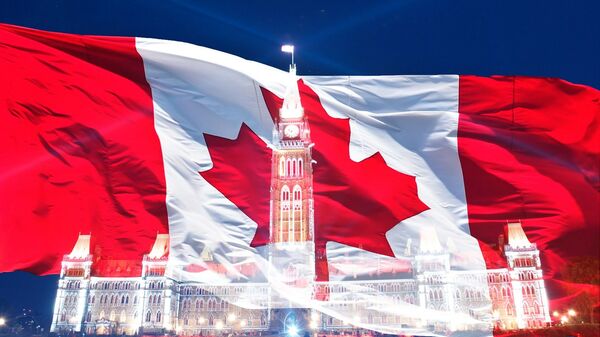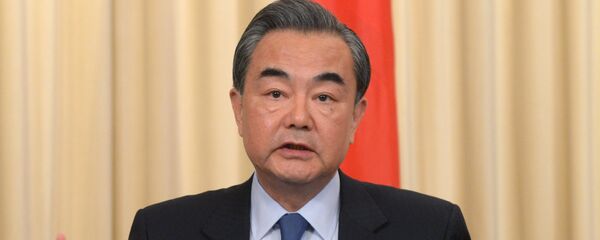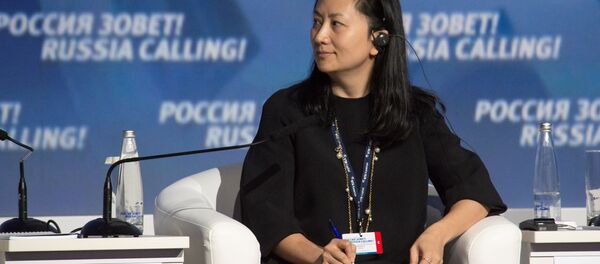Sputnik: In what ways does Canada benefit from getting involved in this dispute between the US and China?
Denis Rancourt: I don't think it's a question of benefit; I think it's a question of Canada largely being subservient to the US and US interests. There is a serious deficit of sovereignty in my country, unfortunately; it has been developing over many decades, and it's only getting worse. It's a slippery slope and we're sliding down it very quickly.
It's really more a question of Canada going along with US desire to be able to bully and intimidate, for hegemony, basically. They want to control all of the IT technologies so that they have free reign for surveillance and so on, and if there is what they consider a rogue entity that can encrypt and protect nations that buy its technology from this surveillance, they see it almost as a security threat; therefore they act in a very strict and harsh way. It's the security arm I think that's mainly acting and driving this.
Denis Rancourt: I think the US and Canada, which is a satellite of the US, are leaving legality aside more and more. You can see that they're moving away from UN Security Council resolutions as being the precursor to interventions; they're moving away from legality and even the notion of sovereign nations. The US is now passing laws where they can [legally] pursue other countries for doing things out in the world, not on American soil.
International law is being degraded at a very fast rate right now, and Canada is this subservient satellite, largely, in terms of its foreign policy. So legality is not going to play much of a role anymore. There's going to be less and less of the nation sovereignty legality that was set up after the Second World War as part of the United Nations framework. Unfortunately, national sovereignty is being brushed aside in the global behaviour of the United States.
Sputnik: We know that after the arrest there's been talk that Canada is doing the US's dirty work. What's the feeling among Canadians on that point, and more importantly, what's your take on it?
Denis Rancourt: Canadians are being swayed by this. The propaganda – I think I have to call it that – the mainstream propaganda is not really going at the heart of the question of what's really going on here. So it's easy to sway public opinion and to get people to agree with this kind of bullying. I mean it is pretty extreme when you start arresting executives of major companies of competing nations. What is there stopping other countries from arresting US executives when they go to other countries? It's really an intensification of battles [between countries] and I think Canadians should be very concerned about this moving away from international law, moving away from respecting sovereignty, but I don't feel a strong countermovement in editorial comments and so on. Unfortunately the mainstream is aligned with this.
Sputnik: You've alluded to Canada's 'complicity' with the United States, and in many international incidents Ottawa sides with Washington, despite the drawbacks it may have on the country. Could you elaborate – why is that the case?
Denis Rancourt: Canada developing a role where it loses its sovereignty and only plays the role of supporting the US and obeying the US is very bad for the country. We're losing our industry, GM has recently moved out of Canada. We're losing our independent ability to have a strong economy. We're encouraging foreign investment, in other words foreign ownership, as the main way to have economic development. All of these things are the opposite of what a nation should do to protect itself and to ensure the security of its citizens.
It's a great concern that Canada is moving in this direction. I mean I can review the history of how we got there, going through the various prime ministers, and both main parties in Canada, Liberals and Conservatives, have participated in this – moving more and more towards this complete subservience to one side of the equation.
The other thing that Canada has suffered is a huge drop in its reputation and its image in the world. Nobody believes that Canada is an independent force for peace anymore. I don't think Canada will regain a seat at the Security Council. I don't think that's in the cards anymore, because we have proven that it is not a player for fairness and balance in the world.
Sputnik: What do you think can be done now for Canada to become more independent from the US? What's your prognosis as to this current situation and the general malaise in Canada's positioning and politics?
Denis Rancourt: It's very difficult to regain your sovereignty when, over the course of decades, you have let it be degraded. It's a very difficult thing to do. Maybe the only way is to maybe have populist governments come in that are a little bit more nationalistic in the sense of sovereignty, and in the sense of protectionism of the national economy, and control within its borders and so on. Maybe these more sovereign-type thinking politicians will have an influence. Maybe Canadians will come to understand that it is not a benefit to keep going in this direction…
Dr. Denis Rancourt is a civil rights advocate, social theorist and former physics professor at the University of Ottawa with over 100 academic articles published in leading scientific journals under his belt. The views expressed by Dr. Rancourt are his own, and do not necessarily reflect those of Sputnik.





